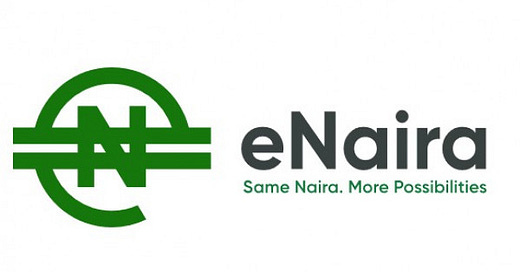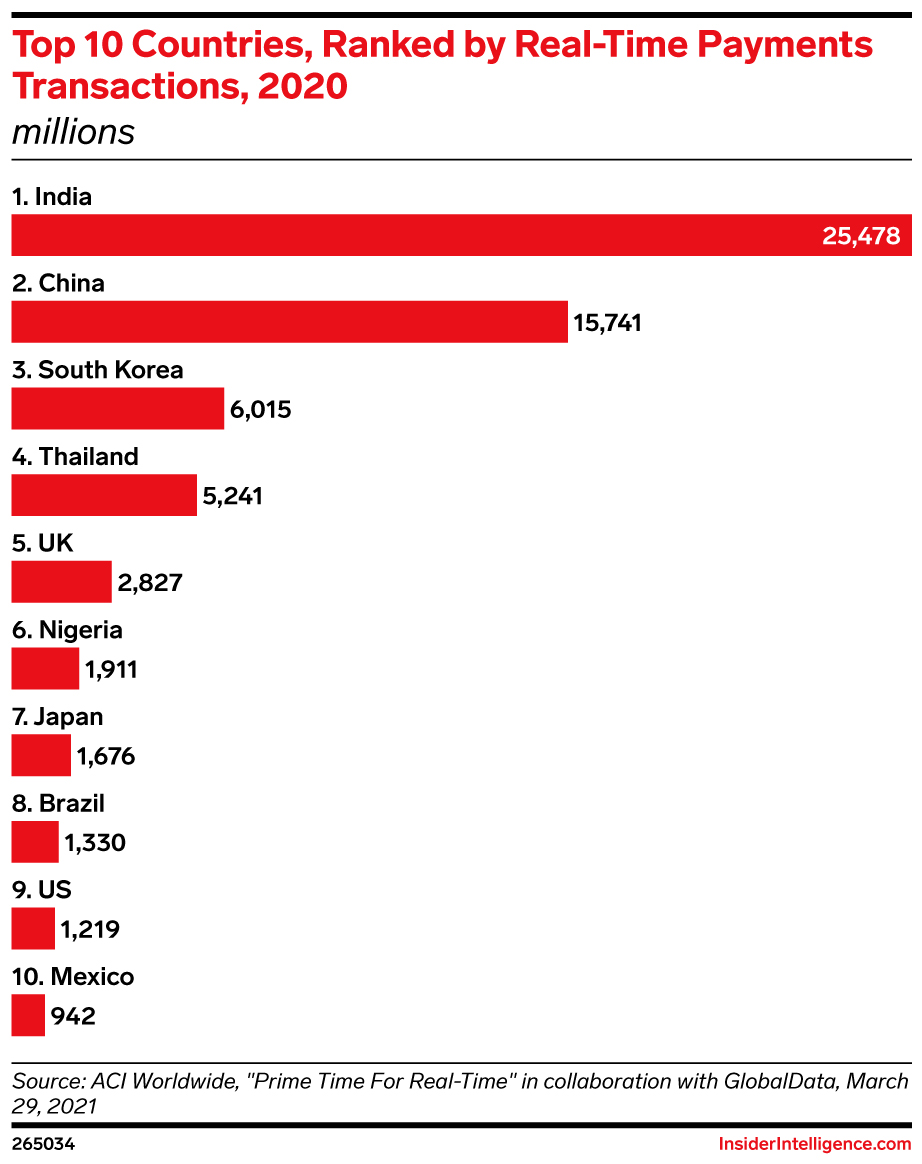Vol 12: Is the eNaira a cryptocurrency? Here are the basic things you need to Know about the eNaira.
There have been a lot of news about digital currencies lately, the rise in global popularity and market value of cryptocurrencies like Bitcoin and Ethereum has summoned governments to issue out their own digital currencies known as central bank digital currencies or CBDCs for short. The central bank of China (PBoC) has been working on this since 2014, although not launched yet. According to a survey carried out by CNBC in 2020, about 60% of the world’s central banks said they are running an experiment with creating their own digital currency.
However, only 7 countries have been able to fully launch their digital currency, they are Antigua and Barbuda, Bahamas, Grenada, Saint Kitts and Nevis, Saint Lucia, Saint Vincent and the Grenadines and Nigeria recently joined, being the only country outside the Caribbean. According to the Central Bank of Nigeria (CBN), the journey to using digital currencies started in 2017 and the concept was thoroughly tested before launching on the 25th of October 2021.
N.B. For most of this article, I’ll be using CBDCs for Central Bank Digital Currencies.
Promoters of the digital currency list some benefits like; it can make cross-border payments easier, promote financial inclusion, make the payment system more stable and make transaction costs lower than cash. But with countries like China and Nigeria getting into this, there are a lot of serious risks like surveillance and privacy issues that could arise if the central banks are able to monitor every transactions, unlike cryptocurrencies that are decentralized, centralizing CBDCs could give controllers the power to add or remove money from anybody’s account at any given moment.
What is a CBDC?
Think of Banknotes, which are the closest equivalence to CBDCs except that they are on paper, these money are issued by the central banks, distributed to the general public through commercial banks and used in daily payments activities, this means that everyone could have access to these digital currencies which could bring a lot of benefits to the citizens.
So, CBDCs are any currency i.e. existing banknotes and coins, available in digital form with similar functions of the paper currency. To simplify it better, the eNaira is simply the digitalized Nigerian Naira.
P.S. To digitize something means to represent something in a digital format. A perfect example would be scanning a photograph and having a digital copy on a computer.
CBDCs can be seen as cash, it might also benefit from the same blockchain technology that underpins cryptocurrencies but it will be centralized and it’s going to be based on the Permissioned or Private Blockchain technology. And just like cash, CBDCs can be distributed through commercial banks, avoiding the central banks dealing directly with millions of citizens and businesses.
A Quick History on Medium of Exchange
Our medium of exchange has always evolved throughout the years, from the pre-historic bartering system to the medieval coins, and Chinese introducing paper notes before Marco Polo brought the idea to Europe, money has always been a medium of exchange and store hold of wealth when everybody recognizes it to be of value. In 1694, the bank of England became the first public bank to regularly issue banknotes as an alternative to coins to make payments, the Lydians were said to be the first region of the world to use an industrial facility to manufacture gold and silver coins that could be used as currency in Europe, thus making Lydia the first civilization to create an official currency.
Currently, most people still use Banknotes and they are printed by central banks entrusted with this duty. when we consider the number of transactions we carry out today, it will be impossible to carry out these exchanges without a medium as effective as our current payment system today, thanks to the advancement in technology which has enabled new breakthroughs for the following stages of the civilization process. So if CBDCs are implemented the right way, we can as well think of them as the future of banknotes.
What is the eNaira?
As said earlier, the eNaira is simply Nigeria’s digital currency issued by the Central Bank of Nigeria, its the naira but it is digital and will be equal in value and used just like cash. Furthermore, the eNaira is designed to function as a trusted, safe and efficient substitute means of payment and not to replace the current payment system.
A company named Bitt Inc. from Barbados helped in creating the eNaira, latest data from the CBN shows the eNaira apps have been downloaded over 566,000 times from 160 countries on the Apple and Google app store and over 17000 transactions have been made on the apps. The eNaira has two (2) applications for its wallets;
eNaira Speed Wallet: This is designed for individual usage.
eNaira Speed Merchant Wallet: This is designed for businesses.
According to the CBN, the eNaira is the same Naira but it offers more possibilities.
Click here to read more.
How It Will Work?
The eNaira will operate just like the money you see when you check your bank account online and it will be issued by the central bank and held directly in a citizens digital wallet (your wallet is the same thing as the account you created on the eNaira app). Instead of printing physical money, the CBN will use electronic notes and at this early stage, the digital wallets will only be accessible through smartphones. Lest I forget, the CBN could also decide whether Nigerians should directly create an account with them or through the existing financial institutions.
Reasons Why the Nigerian Government Launched a Digital Currency
Improving the availability and usability of Central Bank money
Supporting a resilient payment system ecosystem
Encouraging financial inclusion
Reducing the cost of processing cash
Enabling direct welfare disbursements to citizens
Increasing revenue and tax collection
Facilitating Diaspora remittances
Reducing the cost and improving the efficiency of cross-border payments
How does the eNaira differ from Cryptocurrencies like Bitcoin?
A central bank digital currency is not a cryptocurrency. Cryptocurrencies, such as Bitcoin, are not currencies in most countries since they are not legal tender meaning they are not a generally accepted form of payment. Also, CBDCs are regulated by the country’s apex bank, Cryptocurrencies are decentralized and they are not regulated by any central authority.
We might be promised our privacy but it will be good to know that the central banks will still need to have a lot of information about their users due to the use cases of CBDCs, meaning to have a wallet or create an account with your central bank and have access to the CBDC, the central bank will need to have full information on every single user, making sure that one user doesn’t have multiple wallets to avoid crediting the same user twice in cases of stimulus payments etc. All these verification steps are not required in cryptocurrencies, you don’t even need to know the person you’re transacting with.
CONCLUSION
Effectively implementing the eNaira should;
Help our government to accurately manage and properly regulate the social wealth, and it is going to make payments easier, safer and harder to fake.
Financial tech industries should be happy because CBDCs is going to give birth to innovations and new business opportunities and therefore promote the development of Nigeria’s economy.
A further benefit for our government is that the digital currency is expected to lessen the high cost of printing the paper currency, which amounted to N307bn ($747m) between 2014 and 2019, according to a report from the CBN.
According to the CBN, they want to advance the boundaries of the current payment system, in order to make financial transactions easier and seamless for everyone in the society, It is good to know that Nigeria ranks above countries like the United States and Japan in terms of Real-Time payments in the world.
Money has changed substantially since the days of shells and skins to metals and coins, but its main function hasn't changed at all. Regardless of what form it takes, money offers us a medium of exchange for goods and services and allows the economy to grow as transactions can be completed at greater speeds.
In the future, this is where things are headed, as Nigerians become more comfortable with the technology and as the technology and the apps get more advanced, we will start to lose some physical aspect of money, we might still live with physical currencies for decades but in the future, we will be using much more electronic forms of money.
Regarding our country being the early adopters of this technology, I don’t think being first or second is what’s important here, it’s not about being there first, it’s about doing it right.
Until next time, Happy Learning.
Enjoy the weekend.
Faith.







